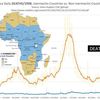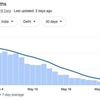Bloggfærslur mánaðarins, maí 2013
Vangaveltur
27.5.2013 | 08:02
Vangaveltur
Þjóðar bókhaldið
Eg er einka fjármálafyrirtækið
Við einka fjármálafyrirtækin, einka bankarnir segjum að allar innstæðurnar
séu horfnar.
Innstæðueigendur verða mjög sárir og vilja fá peningana sína til baka.
Ríkið segir, við viljum ábyrgjast vissar innstæður.
Þá segja einka fjármálafyrirtækin að þessar tölur séu áfram inneign.
Einka fjármálafyrirtækin færa þessar tölur hjá sér sem skuld ríkisins.
Þarna hefur ekkert skeð, nema að einka fjármálafyrirtækið
hefur náð (eignum og þjónustu) að skuldsetja ríkið,
fólkið fram í framtíðina.
Eg. 27.08.2013 jg
-----------------
Bankinn segir ég er tómur.
Bankinn skrifar töluna 1000 miljarða og lánar ríkinu, fólkinu.
Nú á ég allt sem þú gerir, segir bankinn.
--------------
Ef þú villt láta plata þig,
hví skildi ég þá ekki gera það?
Á ég að vera ábyrgur?
Hvað var okkur kennt?
http://www.herad.is/y04/1/2013-01-01-ljos-skina.htm
-------------------------
Ef ég heimta að einka fjármálakerfið greiði til baka, þessa til dæmis 1500 milljarða
sem ríkið hefur verið látið ábyrgjast hjá einka fjármálafyrirtækjunum,
þá skrifar einka fjármálafyrirtækið töluna í bókhaldið hjá sér sem skuld við ríkið.
Allt sem er skuld hjá bankanum verður þú að borga.
Einka bankarnir, það er einka fjármálafyrirtækin eru aðeins að færa
fjármálabókhaldið okkar
Einka fjármálafyrirtækin eru aðeins bókhald.
Bankinn lánar ekkert.
Nú á að styrkja allar varnir í samskiptum okkar við fjármálakerfið.
Lesa og læra áður en við tökum ákvarðanir.
Við höfum ekki skilið fjármálin.
Bloggar | Breytt 31.5.2013 kl. 07:43 | Slóð | Facebook | Athugasemdir (0)
Bankabónusar
25.5.2013 | 09:04
Bankabónusar
Vitund fólksins hefur aukist og nú gleymist ekkert.
Það verður flett upp á internetinu næstu árin og skoðað,
hvernig ríkistjórnin tók á þessu máli.
Lagaði ríkistjórnin fjármálakerfið?
Það er ekki málið hvað ég skrifa hér, það er vitundin sem hefur aukist.
Nú stöndum við frammi fyrir mikilvægri ákvörðun.
Ætlar núverandi ríkisstjórn að verðlauna bankastarfsmenn
fyrir að hafa verið duglega að færa eignir fólksins,
heimili og fyrirtæki til eigenda bankanna.
Að sjálfsögðu verður starfsmaður í fjármálafyrirtæki,
að gera það sem fyrir hann er lagt.
En ætlar ríkistjórnin að breyta fjármálakerfinu þannig,
að ekki sé hægt að taka framleiðslutæki, fyrirtæki og heimili,
af eigendum með kreppufléttunni.
Kreppufléttan er, að fyrst með verðbólgu og síðan með verðhjöðnun,
eru allar eignir færðar til fjármálafyrirtækjanna.
http://jonasg-egi.blog.is/blog/jonasg-egi/entry/1229691/
Endursagt.
Thomas Jefferson said,
"Ef Ameríska þjóðin lætur einkabanka stýra myntútgáfunni,
peningaprentuninni, þá munu bankarnir og fyrirtæki þeim tengd,
ræna þjóðina allri velmegun, "það er fasteignum og lífsviðurværi,"
í fyrstu með verðbólgu, og síðan með verðhjöðnun,
og þá munu afkomendur okkar verða heimilislaus
"og á vergangi í landinu.""
Egilsstaðir, 25.05.2013 Jónas
Bloggar | Breytt 26.5.2013 kl. 19:47 | Slóð | Facebook | Athugasemdir (0)
Bankabónusar
25.5.2013 | 08:40
Bankabónusar
Vitund fólksins hefur aukist og nú gleymist ekkert.
Það verður flett upp á internetinu næstu árin og skoðað,
hvernig ríkistjórnin tók á þessu máli.
Lagaði ríkistjórnin fjármálakerfið?
Það er ekki málið hvað ég skrifa hér, það er vitundin sem hefur aukist.
Nú stöndum við frammi fyrir mikilvægri ákvörðun.
Ætlar núverandi ríkisstjórn að verðlauna bankastarfsmenn
fyrir að hafa verið duglega að færa eignir fólksins,
heimili og fyrirtæki til eigenda bankanna.
Að sjálfsögðu verður starfsmaður í fjármálafyrirtæki,
að gera það sem fyrir hann er lagt.
En ætlar ríkistjórnin að breyta fjármálakerfinu þannig,
að ekki sé hægt að taka framleiðslutæki, fyrirtæki og heimili,
af eigendum með kreppufléttunni.
Kreppufléttan er, að fyrst með verðbólgu og síðan með verðhjöðnun,
eru allar eignir færðar til fjármálafyrirtækjanna.
http://jonasg-egi.blog.is/blog/jonasg-egi/entry/1229691/
Endursagt.
Thomas Jefferson said,
"Ef Ameríska þjóðin lætur einkabanka stýra myntútgáfunni,
peningaprentuninni, þá munu bankarnir og fyrirtæki þeim tengd,
ræna þjóðina allri velmegun, "það er fasteignum og lífsviðurværi,"
í fyrstu með verðbólgu, og síðan með verðhjöðnun,
og þá munu afkomendur okkar verða heimilislaus
"og á vergangi í landinu.""
Egilsstaðir, 25.05.2013 Jónas Gunnlaugsson
Bloggar | Breytt s.d. kl. 12:16 | Slóð | Facebook | Athugasemdir (0)
Fróðlegt
18.5.2013 | 19:02
Fróðlegt, jg
Grein í Morgunblaðinu 16,05.2013 eftir Holberg Másson
http://pappir.mbl.is/index.php?s=5301&p=118616
Snjóhengjan og lausn hennar.
“Eitt grundvallarmarkmiðið hlýtur að vera að Ríkissjóður Íslands standi að minnsta kosti jafn vel og hann stóð fyrir hrun bankanna.
Þann 10. desember 2012 settu Bandaríkin, Bretland og svo síðar Evrópusambandið fram reglur um hvernig þessi lönd myndu framvegis standa að lausn bankahruns.
Í samræmi við þessi viðmið ætti ríkissjóður að fá greidda 1.480 milljarða til að borga uppsafnaðan kostnað vegna bankahrunsins.”
Bloggar | Breytt 31.5.2013 kl. 07:32 | Slóð | Facebook | Athugasemdir (0)
Lesa
16.5.2013 | 09:37
Lesa
Það er uppörvandi hvað margir eru farnir að velta fjármálakerfinu fyrir sér.
Hér er fróðleg grein í Morgunblaðinu. jg
"Mark C. Taylor, forseti trúarbragðadeildar Columbia-háskóla í New York, telur að fjármálamarkaðir samtímans séu stjórnlausir og fái ekki staðist. "
http://www.mbl.is/vidskipti/frettir/2013/05/16/kerfid_er_stjornlaust/
"Taylor segir að fólk átti sig almennt á þeim
breytingum, sem átt hafi sér stað á mörkuðunum.
Allt tal um að auka atvinnu, skapa störf, bæta innviði komi málinu ekki við.
„Vandinn liggur í kerfinu," segir hann. „
Vandinn liggur ekki í einstaklingum, nokkrum stjórnlausum verðbréfasölum,
hann er kerfisbundinn og verður ekki leystur með því að finna skemmdu eplin.
Fólk áttar sig hins vegar ekki og stjórnmálamennirnir eru úti að aka.
Þeir sem skilja kerfið best eru þeir, sem eiga hag í að halda því við.
En það er hægt að átta sig ef maður gefur sér tíma
og ég held að það sé mikilvægt að gera það
vegna þess að kerfið er stjórnlaust."
Bloggar | Breytt 2.6.2013 kl. 09:58 | Slóð | Facebook | Athugasemdir (0)
Forvitnilegt
14.5.2013 | 13:23
Forvitnilegt, þetta er aðeins sýnishorn.
http://www.jstor.org/discover/10.2307/2296881?uid=3738288&uid=2&uid=4&sid=21102010384283
Bloggar | Slóð | Facebook | Athugasemdir (0)
Peningakerfið
14.5.2013 | 13:01
Peningakerfið.
Nýta hvern einstakling, og nota náttúruauðlindir á þann máta,
að allt efni gangi í hring, og sé notað aftur og aftur.
Við höfum oft á undanförnum öldum, lent í miklum kreppum,
af því að það var skortur á peningum, til að greiða fólkinu fyrir vinnu,
til að framleiða vörurnar og síðan er fólkið neytendur sem kaupir vörur og þjónustu.
Þá höfðum við ímyndað okkur að ef við ættum ekki gull grafið í hól úti á túni,
þá mætti ekki skapa aura, peninga.
Nú vitum við að vinnan skapar vörurnar og þjónustuna,
sem eru verðmæti, ásamt auðlindunum.
Ef við höfum verðmæti, þá notum við bókhaldið aura, peninga til að víxla því á milli okkar.
Ef við höfum einn mann tilbúinn í að gera gagn, það er að búa til vöru eða þjónustu,
sem er verðmæti, þá er óhætt að skapa aur, pening til þess.
Þessi grein er mjög lærdómsrík.
Egilsstaðir, 06.01.2013 jg
A Monetary System for the New Millennium
http://www.worldtrans.org/whole/monetarysystem.html
(I am trying to draw attention, highlight, for better learning jg)
by Roger Langrick
The Debt Engine is a phrase to describe unrelenting, forever increasing private and government debt. The need to stay ahead of escalating debt fuels practically everything we do; it forces us out of bed in the morning to go to jobs that most of us despise. Corporations make all their decisions around first how to service their snowballing debt, and secondly around profit. Governments spend all their time worrying about how to meet their social agendas while at the same time service the increasing debt load of deficit spending.
As a motivating force, the Debt Engine now exceeds all others in the insane dash of the planet towards self destruction. Universal unrepayable debt creates a social environment in which certain types of behavior flourish and inhibits or destroys any tendency towards long term concerns and nourishment.
Unrepayable Debt is different than the everyday debt of normal life. Unrepayable Debt is an actual built in flaw of our present monetary system: The Fractional Reserve System.
It benefits no-one except those intimately connected with the banking industry and in spite of its devastating repercussions, it is a flaw that can be fixed.
Everyone has some ideas about money, who controls it, where it comes from and how it operates. Some say the government prints it; others say hard work makes money, while others would guess that it's something to do with gold. They might also picture it as a vast pile with everyone competing for as much as they can get. Bankers sometimes inflame our passions by claiming that the government has grabbed all the money and there is none left for private industry.
It's all poppycock.
Our money supply isn't created by the government;
a brilliant idea doesn't make money
and neither does hard work (unless you happen to be in the counterfeiting business.)
Our money is a national accounting system of who owes what to whom,
and it is a system that is owned and operated by the private banking industry.
There is no such thing as a static heap of money created by hard work and business cunning.
Money flicks in and out of existence as credit and debit balances; the money supply swells and contracts continuously as loans are created and then destroyed.
Money is simply a bookkeeping system; a man created device.
The man who invented the monetary system which we use today was a Scotsman, John Law, who lived during the 18th. century. He invented a new type of money to replace the old one of specie (the use of coins). In doing so he created the mechanism to finance the industrial revolution, and ultimately our modern technological world.
Much has been made of the astounding inventions of that era but what is often forgotten is that most of them would have never have seen the light of day without John Law and his invention: the Fractional Reserve Money System.
Without it, there would have been no railroads, no Nissans or G.M.'s, nor would there have been any super highways to drive them on. There would have been no space shuttle, no Love Canal, no drift net fishing, no heart transplants and no Cruise missiles.
What John Law did with his invention of a new money system was enable the Industrial Revolution, with all of its good and bad aspects, to take place. Without him, the Revolution would have fizzled and died and with it, our technological world.
Here was the problem which John Law solved. In the early 1700's the newly industrializing nations of the world were in a perpetual state of economic crisis because their coinage system of money could not keep up with demand. Governments tried everything to increase the money supply. One trick was to make new coins much smaller than the old thereby getting more per ounce, but it was a stop gap measure at best.
To grasp the magnitude of the problem, try to imagine building just one modern skyscraper using only gold coins as finance. The industrialists of the Industrial Revolution were faced with a similar problem; how to build their factories, mills and railroads using only scarce gold coins.
John Law's solution was to create a national paper money supply; banknotes that would be officially recognized as "real money". The advantages were obvious. Paper money could be expanded indefinitely and was much cheaper than specie to make. To get and keep initial public confidence, Law suggested a fraction of gold be always kept on hand for the few people who wanted to redeem their notes.
Through a process of trial and error it was found that specie could support about ten times its value in paper money. That is, a bank which held $10 in gold could safely print and loan out about $100 in paper money. The gold held in reserve was obviously a mere fraction of the banknotes which it supported and so the system became known as the Fractional Reserve System. The private banking industry was chartered by government to create the new money supply of paper notes. Until earlier in this century, banks literally printed their own supply against their own gold reserves with their name on each note, and lent them out to the public and government. Now the federal government has taken on the printing job but the notes are still drawn on private banks.
In the 1930's the convertibility of bank notes was dropped but the Fractional Reserve System is alive and well today, albeit in a more sophisticated form. Cheques or credit cards have largely replaced paper money but the principle remains the same; the banking industry creates the money which government and society then borrows.
John Law's method of money creation is still the dynamo that powers our present world. By replacing specie with a simple national accounting system of credit and debit, he made money infinitely more flexible, able to be contracted or expanded to meet any situation.
However, using the Fractional Reserve System has not been a universally happy experience. It has a built in mechanical flaw that always keeps total national and private debt ahead of the money available to repay it. In fact the more a nation expands, the more it automatically goes into debt to the system over and above the money that it borrows.
To explain, imagine the first bank which prints and lends out $100. For its efforts it asks for the borrower to return $110 in one year; that is it asks for 10% interest. Unwittingly, or maybe wittingly, the bank has created a mathematically impossible situation. The only way in which the borrower can return 110 of the bank's notes is if the bank prints, and lends, $10 more...at 10% interest.
When presented with this scenario, there is often a tendency to think :"Ah, but the borrower can always make the extra $10 somewhere else, through hard work or a deal overseas." However, although we frequently inter change the two sayings, earning money is not the same as making it. Earnings are simply a transfer of money from on ownership to another and neither increase nor decrease the total money in existence. Making money actually does increase the nation's money supply but no-one can do that but the banking industry itself as laid down in its charter from the federal government.
The result of creating 100 and demanding 110 in return, is that the collective borrowers of a nation are forever chasing a phantom which can never be caught; the mythical $10 that were never created. The debt in fact is unrepayable. Each time $100 is created for the nation, the nation's overall indebtedness to the system is increased by $110.
The only solution at present is increased borrowing to cover the principle plus the interest of what has been borrowed. The business or government that cannot expand its borrowing every year is seized by its increasing debt load and dragged under.
Many economists are not unmindful of the problem but pass it off as irrelevant. They say that if the marketplace economy keeps expanding, thereby fuelling an increase in the total money supply, there is no problem with meeting interest payments on an increasing debt load. But under such circumstances, economic expansion is not a luxury but an imperative to stay ahead.
In John Law's day, the need to continuously expand to meet growing debt repayments was seen as a minor problem of no consequence. Today however we all know the planet cannot sustain unlimited growth. Even so, we are stuck with a monetary system that demands continuous expansion or face the chaos of total economic collapse.
The consequences of the Debt Engine are everywhere. Political and business leaders are sacrificing the planet to stay ahead of bankruptcy. Technology is not being used to create a sane and sustainable lifestyle for us all but is being channeled into the most narrow band of activity: the market place activity of "making" money. Just as governments are forced into ignoring vital social and environmental questions in their efforts to balance the books, so many corporations are putting to one side such things as resource depletion and the destruction of the ecosystem in their frantic efforts to remain economically alive.
But the situation is not completely bleak. Just as John Law found a way around the impasse of coinage, so there are solutions for the problem of unrepayable debt. Obviously the first thing to do is make sure that the ratio of credit to debt is always the same. Under the Fractional Reserve System, $100 credit is created and $110 debt is demanded in return; that is, there is always more debt than credit. This equation should be $100 credit equals $100 debt.
The mechanics of how to achieve this were proposed over one hundred and fifty years ago. It was proposed that the nation's money be created by two agencies: the banking industry and government.
Instead of taxes, government would be empowered to create money for its own expenses up to the balance the debt shortfall. Thus, if the banking industry created $100 in a year, the government would create $10 which it would use for its own expenses. Abraham Lincoln used this successfully when he created $500 million of "greenbacks" to fight the Civil War.
A government which creates its own money supply becomes independent and the most important result of freeing government from its present debtor relationship to the banking industry would be to make it more able to respond to social pressures for reform. A financially independent government would be able to pursue long term agendas for the betterment of society. For instance, a twin source of money creation could not only rapidly reduce taxes, but create additional funding for other initiatives. A government having the same right of issue as is now monopolized by the banking industry could fund vital job creating initiatives such as environmental repair and sustainable technology on a scale that is hard to imagine.
America has the resources to lead the world into a sustainable future. But it needs a monetary system which will allow for its resources to be mobilized towards a greater destiny than marketplace superiority. Such a new monetary system with all of its potential would require a dramatic upgrading of society's consciousness and understanding of money. We have to move from a simplistic belief in money having an intrinsic value of its own and see it as a bookkeeping system of the real wealth of our nations. Ultimately our money is not dependent on gold in Fort Knox but on the human and natural resources which it represents.
The world has passed beyond an age of scarcity and the challenge of the new era is not about solving problems of want, but dealing with abundance and how to use it to create a sustainable future. Above all we need the visionaries able to point the way.
In my forthcoming book Superproduction I try to address the potential which is now in our grasp. With computerization, robotics, advances in genetics and food growing, we have the potential to turn the planet into a sustainable ecosystem capable of supporting all. We have the technology to genuinely contemplate colonizing the solar system.
This is not a time to be saddled with an 18th century money system designed around the endless rape of the planet. John Law enabled humanity to scrabble out of scarcity but now his system is antiquated. Philosophically it is based on the robber baron mentality and technically it is flawed with Unrepayable Debt. As such it is unable to respond either to the abundance which it created or the problems which it spawned.
The Debt Engine has distorted the potential of the Industrial Revolution and forced us into a narrow focus of marketplace ethic.
A new monetary system with enough government control to ensure funding of vital issues could unlock the creative potential of the entire nation.
By redirecting the focus of our national economy, a new monetary system would enable men and women who can think in terms of abundance not only for themselves but how also to use it for the benefit of the entire planet.
I know John Law would approve.
Roger Langrick
963 Maple St. White Rock
B.C. Canada V4B4M4
(604) 531-1004
roger.langrick@dafbbs.com
Bloggar | Breytt 15.5.2013 kl. 20:13 | Slóð | Facebook | Athugasemdir (0)
Lesa aftur, read again
11.5.2013 | 20:41
Lesa aftur
Read again
I do not know if I am allowed to do this.
I will ask the (blog.is) Árni Matthíasson on Monday
http://www.herad.is/y04/1/2013-01-06-monetary-system-for-the-new-millennium-07.htm
http://www.worldtrans.org/whole/monetarysystem.html
http://jonasg-egi.blog.is/blog/jonasg-egi/entry/1275824/
Bloggar | Breytt s.d. kl. 20:56 | Slóð | Facebook | Athugasemdir (0)
Þjóðirnar eiga ekki að greiða spilapeninga fjármálakerfisins.
10.5.2013 | 22:08
Skoða
Þjóðirnar eiga ekki að greiða spilapeninga fjármálakerfisins.
Eg. 10.05.2013 jg
Það skaðar ekki að líta á þessa grein frá 2009.
August 18, 2009
Share on facebook Share on twitter Share on google More Sharing Services 0
The Specter of Debt Revolt Is Haunting Europe
Why Iceland and Latvia Won’t (and Can’t) Pay for the Kleptocrats’ Ripoffs
by MICHAEL HUDSON
“The European Union and International Monetary Fund have told them
to replace private debts with public obligations, and to pay by raising taxes,
slashing public spending and obliging citizens to deplete their savings.
Resentment is growing not only toward those who ran up these debts
– Iceland’s bankrupt Kaupthing and Landsbanki with its Icesave accounts,
and heavily debt-leveraged property owners and privatizers in the Baltics and Central Europe
– but also toward the neoliberal foreign advisors and creditors who pressured
these governments to sell off the banks and public infrastructure to insiders.”
Bloggar | Slóð | Facebook | Athugasemdir (0)
Snjóhengjan
7.5.2013 | 14:58
Snjóhengjan
100 % peningar
Oft er sagt að peningar séu 97% búnir til með peningum,
það er í því að pappírast.
Það að pappírast skapar enga vöru eða þjónustu.
Þá er sagt að 3% séu til þarfa, það er til að búa til
vöru, þjónustu, atvinnutæki, fasteignir, vegi, hafnir, flugvelli
og allt sem að gagni verður.
Þá verður okkur hugsað til snjóhengjunnar, skuldanna,
sem bankarnir, fjármálafyrirtækin hafa skapað.
Eru þessar fjárhæðir, spilapeningar, orðnir til
við spilamennsku fjármagnsins?
Er ástæða til að þjóðirnar séu að eyða dýrmætum gjaldeyri,
til að borga spilamennsku fjármagnsins?
Áður en við látum okkur detta það í hug
að skipta þessum spilapeningum í gjaldeyri,
þá skulum við hugsa í tvö til fjögur ár.
Líklegt er að þegar við skiljum fjármálakerfið
og kreppufléttuna, að þá sjáum við snjóhengjuna
í nýju ljósi.
http://jonasg-egi.blog.is/blog/jonasg-egi/entry/1229647/
Nú er að lesa og læra,
og taka hugleyðslu bað.
Hvað var það nú aftur.
http://www.herad.is/y04/1/2012-02-18-1916-hugsanaferli.htm
Við nýtum okkur reynslu undanfarandi ára, og greiðum ekki
eitthvað sem við eigum ekki að greiða.
Þess vegna leitum við að upplýsingum og skilningi,
áður en við tökum ákvörðun.
Það er lítið gaman að sitja uppi með ákvörðun,
sem allir sjá eftir tvö til fjögur ár,
að var ekki vel ígrunduð.
Vitundarvakning er undanfari skynseminnar.
Egilsstaðir, 07.05.2013 Jónas Gunnlaugsson
Bloggar | Breytt s.d. kl. 20:07 | Slóð | Facebook | Athugasemdir (0)








